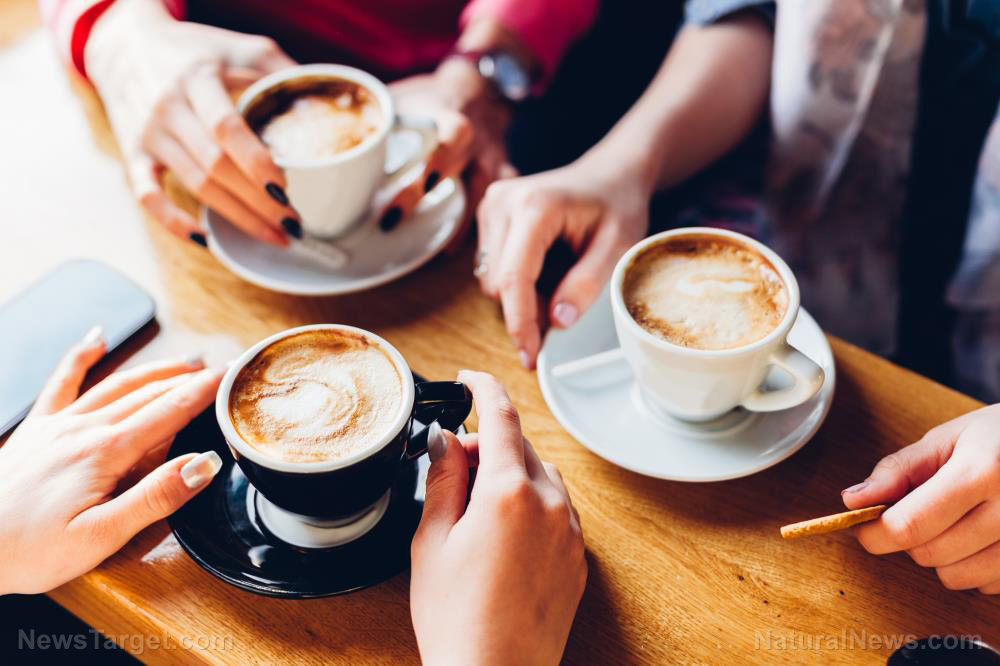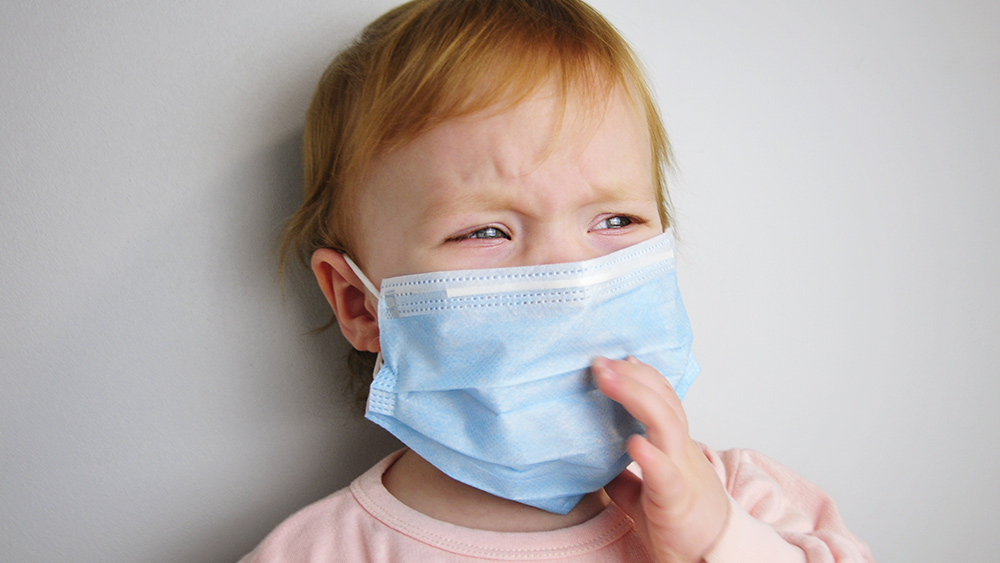LOCKDOWN LUNACY: Social isolation harms brain health and increases dementia risk, warn researchers
06/23/2022 / By Zoey Sky

During the Wuhan coronavirus (COVID-19) pandemic, governments across the globe enforced many draconian measures like lockdowns and vaccine passports to curb the spread of coronavirus. However, studies show that lockdowns may have done more harm than good, especially to the mental health of people of all ages who have had to spend time in social isolation.
Social isolation, or “the absence or near absence of social connections or relationships,” and loneliness are bad for your well-being. Research points to a connection between living in social isolation and health problems like anxiety, depression, decreased immunity and various physical stress responses.
According to a study published in the journal Neurology, social isolation can even harm the brain and increase dementia risk.
People who are socially isolated have a greater risk of developing “later dementia”
For the study, researchers used data gathered from 30,000 participants at the U.K. Biobank.
After examining the data, they discovered that people who were socially isolated had a 26 percent greater probability of developing dementia than socially active individuals. People older than 60 are the hardest hit.
Social isolation itself is a risk factor for dementia and negatively affects brain health.
Barbara J. Sahakian, a professor at the University of Cambridge Department of Psychiatry, advised that since social isolation is a risk to brain health and is linked to dementia, the government and communities must take immediate action “to ensure that older individuals have communication and interactions with others on a regular basis.”
The results of a 2021 study also concluded that the forced social isolation that affected many individuals during the pandemic caused a domino effect of repercussions regarding mental health. Scientists examined patients and their caregivers, along with the impact of social isolation and found that:
- Over 50 percent of patients with dementia experienced a decline in memory function.
- Over 30 percent of the patients felt sadder.
- At least 40 percent experienced an increase in their anxiety symptoms.
The increase in anxiety symptoms caused an increase in dementia symptoms, such as agitation, hallucinations and difficulty in daily life activities.
CDC pushed lockdowns despite their known health risks
The Centers for Disease Control and Prevention (CDC) referenced several studies that highlight the health risks linked to social isolation in adults older than 50.
Studies revealed that social isolation can increase the risk of:
- Anxiety, depression and suicide
- Stroke by 32 percent
- Dementia by about 50 percent
- Heart disease by 29 percent
- Premature death from all causes
Heart failure patients who were socially isolated had:
- A four-fold increase in the risk of death
- Increased risk of hospitalization by 68 percent
- Increased risk of emergency room visits by 57 percent
Despite these dangers, during the coronavirus pandemic the CDC advised people to quarantine and isolate themselves.
Tips for reducing dementia risk
Here are some tips that can help reduce your risk of dementia:
Monitor your blood pressure and keep systolic blood pressure at 130 mm Hg or lower, especially if you are 40 or older.
Reduce exposure to secondhand smoke and air pollution.
Be careful and prevent falls to avoid head injury. Make sure your home is fall-proof and wear shoes with non-skid soles that fully support your feet. Join fall prevention programs online or in your city. When riding in a car, always wear seatbelts and helmets to help protect you from concussions and other brain injuries.
Maintain good physical health and a healthy weight. Being overweight or obese may increase your risk of related health problems like diabetes and heart disease.
Eat a nutritious diet consisting of different organic fruits and vegetables, whole grains, lean meats and seafood, unsaturated fats like olive oil and low-fat or nonfat dairy products. Limit your intake of other fats and sugars. (Related: Study: Choline helps improve cognitive performance in the elderly.)
Limit or avoid alcohol consumption altogether. Drinking too much alcohol can cause falls and worsen health conditions like diabetes, high blood pressure, memory loss, mood disorders and stroke. According to the National Institute on Alcohol Abuse and Alcoholism (NIAAA), men should only have two drinks a day and women only one.
Don’t smoke or quit smoking. Whether you’re young or old, quitting smoking can improve your health and lower your risk of heart attack, lung disease and stroke.
Keep your brain active with brain games, puzzles, lessons and discussions. You can also read more books, start a new craft or take up a new hobby. Another option is to work or volunteer.
Keeping your sugar intake very low. Higher than normal levels of blood sugar (glucose) can cause diabetes and may increase your risk of cognitive impairment, dementia, heart disease and stroke. Improve your eating habits, exercise regularly, quit smoking and monitor your glucose levels to manage your blood sugar.
Get at least seven to eight hours of good quality sleep. Restful sleep is important for both your mind and body. Talk to your doctor if you are not getting enough sleep or having trouble sleeping.
Have regular social interaction with your family and friends. Connecting with people and engaging in social activities can help prevent social isolation and loneliness, which are linked to higher risks for cognitive decline and Alzheimer’s.
If you are caring for an older family member, senior centers or senior daycare facilities can be a good way to help them get some social interaction. Plan ahead for older adults who may suffer greatly from loneliness and isolation so you’re ready for another pandemic.
Regardless of age, people are social creatures. It’s important to interact with others.
Visit BrainHealthBoost.com for more tips on how to boost brain health and prevent dementia.
Watch the video below to find out how magnesium can boost your brain health.
This video is from the Natural News channel on Brighteon.com.
More related stories:
7 Natural ways to battle loneliness and feelings of isolation.
Toxic foods that may cause dementia.
Phytochemical in apple peels found to boost brain health.
Sources include:
Submit a correction >>
Tagged Under:
Anxiety, brain function, brain health, cognitive health, covid-19, dementia, depression, health science, lockdowns, Medical Tyranny, mental health, mind body science, pandemic, quarantine, research, social isolation
This article may contain statements that reflect the opinion of the author
RECENT NEWS & ARTICLES
BrainFunction.News is a fact-based public education website published by Brain Function News Features, LLC.
All content copyright © 2018 by Brain Function News Features, LLC.
Contact Us with Tips or Corrections
All trademarks, registered trademarks and servicemarks mentioned on this site are the property of their respective owners.




















